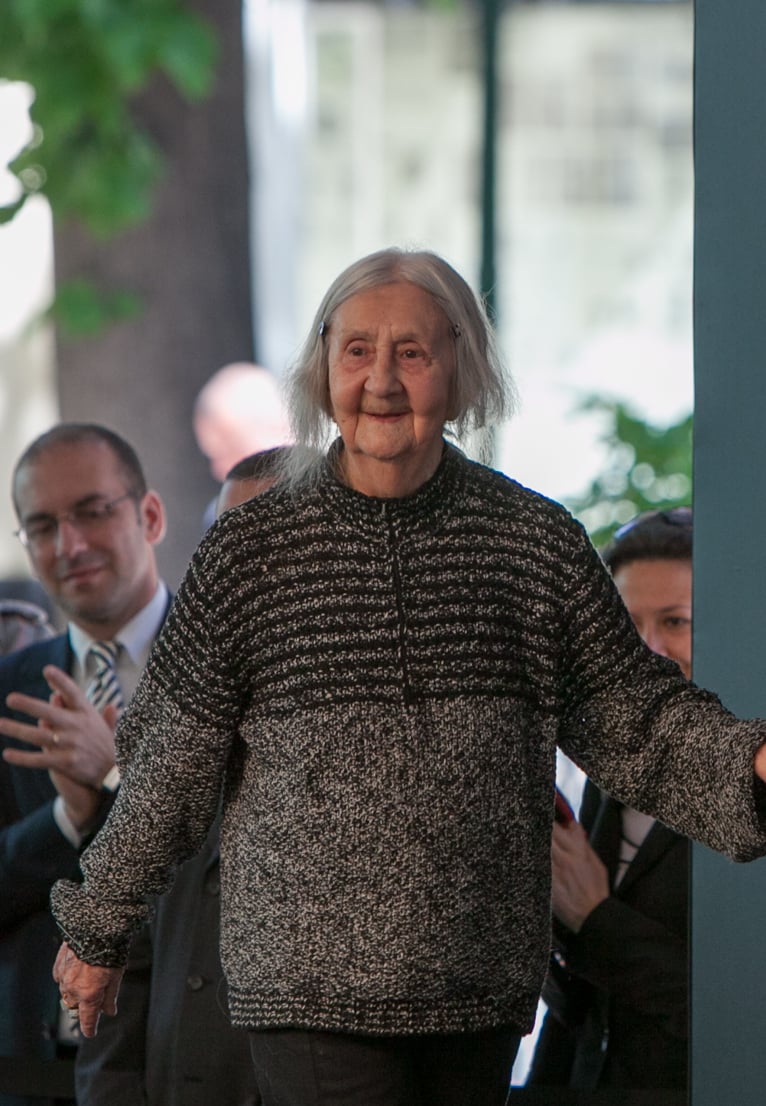
The Italian artist Marisa Merz, who was the sole female artist in the influential Arte Povera (poor art) movement, has died aged 93. She brought a uniquely female perspective to the movement, often using traditionally domestic crafts, such as knitting and braiding, and unabashedly making references to domestic life, and motherhood in her sculptures and installations.
Often overshadowed by her husband, the Arte Povera pioneer Mario Merz (1925-2003), Marisa Merz had to wait until she was 90 to get the museum recognition she deserved.
The mainly male Arte Povera movement came to international prominence in the 1960s. The term was inspired by the artists’ use of everyday and unspectacular materials, such as wax, copper wire, and salvaged wood.
Marisa Merz, who died on Friday July 19, did not start making art until she was in her 40s. She began by creating aluminium “Living Sculptures” in her kitchen, and her work was first exhibited in Turin’s Piper Club in 1967. While her early work includes mobiles and functional objects, such as a plywood swing for her daughter, in the 1970s she moved into creating immersive environmental installations. In the following decades, she began creating her memorable wax heads and figurative clay sculptures, and continued to make ethereal drawings, sculptures, and paintings late into life.
“We mourn the visionary, great artist Marisa Merz,” the Turin-based curator Carolyn Christov-Bakargiev, wrote in tribute on Twitter. “She saw the world distilled through her inner eye; so keen, she was an angel on earth,” the curator added. “Her aesthetic of the daily miracle lies at the root of Arte Povera. Last night, the stars shone as she passed through them, on her way to Mario.”
“For anyone who has been lucky enough to meet Marisa, she was an artist and person unlike any other,” the dealer Thomas Dane, who represents Merz, tells artnet News. “Her work, rather than answer questions, was made to ask them. In a world so full of certitudes, she brought back a sense of mystery and poetry.”
Marisa Merz took part in documenta 7 in 1982, and documenta 9 in 1992. She was also included in the Venice Biennale in 1988, and in 2001 she received the biennale’s Special Jury Prize award, followed in 2013 by the prestigious Golden Lion for lifetime achievement.
Marisa Merz with Living Sculpture, Turin, 1966. Courtesy Fondazione Merz.
Little is known about Marisa Merz’s early life, including her maiden name. She was born in 1926 in Turin. Her father worked at Turin’s Fiat car factory. It is reported that she may have studied dance, and that she modeled for the neoclassical painter Felice Casorati in the 1940s.
In the 1950s, she met Mario Merz while she was a student in Turin. They married in 1960, and had one daughter, Beatrice Merz. In 2005, Beatrice Merz opened a contemporary art center in Turin, the Fondazione Merz.
Beatrice Merz, Mario Merz and Marisa Merz at the 37th Biennale di Venezia, 1976. Courtesy Fondazione Merz.
While she was only belatedly recognized as a leading Arte Povera artist, having often been excluded from exhibitions, or unnamed when her work was featured, Marisa Merz continued undeterred to work until late in life. In 2017, the Met Breuer staged the first major retrospective of her life’s work, “The Sky Is a Great Space.”
“An occasion that might have seemed a revisionist historical footnote turns out to be more like the best saved for last,” the art critic Peter Schjeldahl wrote in the New Yorker about the long-overdue exhibition, which went on to tour the Hammer Museum in Los Angeles, the Serralves Museum of Contemporary Art in Portugal, and the Museum der Moderne in Salzburg in Austria.